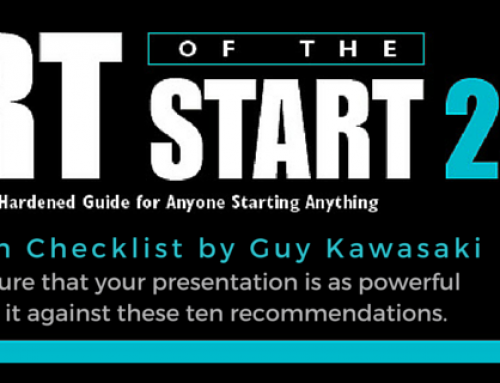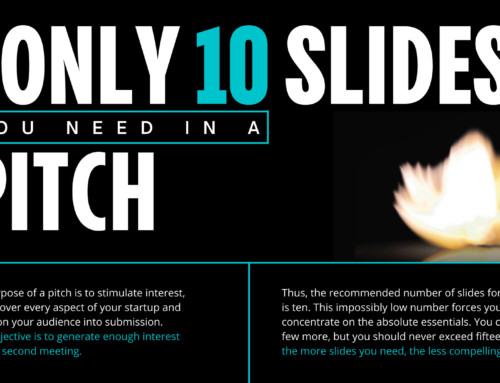Scott Kirsner wrote a great article called “12 Guidelines for Great Panels.” Check it out here. If you read “How to Be a Great Moderator” and “How to Kick Butt on a Panel,” you’d have panels down to a science.
I have an additional insight regarding panels. Most panels have audiences of 100 to 250 people; however, approximately 20,000 people watched Churchill Club’s “Startup 2006” panel (Veotag version, Google Video version). You could have knocked me over with a feather when I learned of this number. More people probably watched this panel than any other panel in the world in 2006. :-)
Online audiences of this magnitude impacts every panel in several ways:
-
The size of the audience at the event is not nearly as important as whether it will be recorded and publicized. With the online video, there’s no such thing as a small audience anymore.
-
No matter how small the physical audience and obscure the event, you’d better be on your toes and give a great performance because tens of thousands of people might see it. With online video, there’s no such thing as a “small slip up.”
-
Best case: look at both the audience and the camera. Whatever you do, don’t look at only the moderator unless you want 20,000 people to only see the side of your face.




Scott’s article is great, especially the captioned photos! I think the most mundane panel setups are where the moderator is on a high chair and the participants are seated on regular ones – sort of like the King and his vassals…
I still think Guy, someone (maybe not you) is going to find a way to involve and include those 20,000 viewers, and just the 200 in the room. The groups that do will leave the others behind since people want at least the opportunity to be involved, to have the questions and issues most important to them addressed. They want to participate in their media, not just consume it. Again, a small percentage may actually take the time to submit questions and choose what gets asked, but a large percentage will be happy that people like them had a voice. How this is done exactly, we shall see; we have our system for doing it. Still, my bet is this will be more popular as we move forward . . . it’s the 20,000, not the 200, that does not have a way to be involved.
And…Action!
Guy Kawasaki’s blog entry: The Art of Panels from yesterday, speaks volumes about the impact of internet video. He also gives some useful tips on making the transition from old world exposure. Things are changing rapidly in the world we
I agree with SorenG, it is the enlightened organizer that allows e-mail questions before hand. These are usually easier to answer too because the panel participants can have a heads up on topics coming down the pipe. Allows them to relax a bit while still looking like superstars!
Guy, in looking back at your how to be a great moderator and at Scott’s suggestions – really good stuff that I agree with except for the prep and slides of panelists. I’ve found that anytime I let panelists just show up – they aren’t prepared to provide reasonably concise answers. It’s way better to ask them to prepare two PPT slides to tell a particular story than it is to have them ramble on with their ill-prepared answer. However, once you get beyond the base story – it is way better not to have much preparation. At our recent Web 2.0 event, having Microsoft, IBM and Google giving perspectives without prep was great, but you still needed the audience to have some context (story) for their answers.
Man, I love this article!
It is such a great example of clearly written, useful information that has very practical application. I, too, love the pictures!
Thanks Guy for passing it on and thanks Scott for taking the time to write it.
With online video, there’s no such thing as a “small slip up.”
This is so true Guy, especially now when we live amidst the Youtube Generation. Just ask “kramer” from “seinfield” who had a wild outburst the other night.. just ask the George Allen, and others who have been struck by negative advertising due to Youtube and you will know the true nature of…
ALWAYS PUT YOUR BEST FOOT FORWARD… all the time..
thanks for the great article guy.
(nicholas)
Guy, so which is it? “The art of panels” or “The science of panels”?
PS I found your post while searching for quilting tips. *smiles
Kimber:
Our process is actually transparent, not via email, as I think people want to see what others are thinking. Also, rather than the editor/reporter/host deciding by looking through a ton of emails, the community actually decides what questions are asked. You can see a session here: http://www.tricycle.zooleo.com
Excellent source of information and I will be watching this blog on a regular basis for the informative tips.